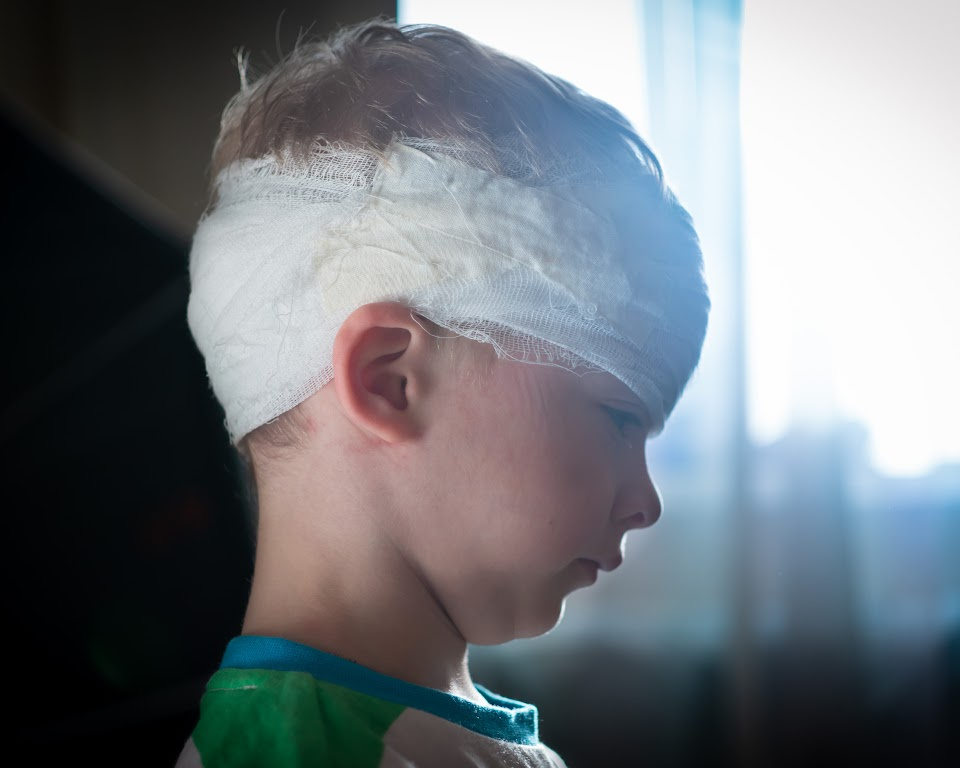Understanding how to communicate with a nonverbal autistic child is a challenge many parents, caregivers,…

Can Head Injury Cause Autism? Explore the Link
The intersection of head trauma and subsequent health outcomes is a matter of growing discussion, particularly when considering developmental disorders. The recurring inquiry – can a head injury cause autism – often surfaces among parents, healthcare professionals, and educators. While it’s essential to address this concern, the scientific community continues to unravel the complexities of this topic.
Autism spectrum disorder (ASD), known for its array of communication and social challenges, remains under investigation concerning its etiology. The traumatic brain injury and autism correlation is a particularly nuanced aspect of these investigations. Studies referenced in the Journal of Autism and Developmental Disorders hint at the possibility that brain injuries, especially those occurring early in life, could lead to an increased risk of autism-like symptoms. However, it is crucial to understand that a direct causative head trauma and autism connection has not been definitively established, sparking a wave of research aimed at understanding potential links.
Families and individuals navigating the uncertainties after a head injury might wonder about the long-term ramifications. As we delve into this subject, the goal remains to provide helpful, easy-to-understand information that clarifies the ongoing dialogue about brain injury and its potential effects related to ASD.

Understanding Autism and Its Complex Origins
The nature of Autism Spectrum Disorder (ASD) involves intricate challenges in three primary areas: communication, social interaction, and repetitive behaviors. Current academic literature stresses that the origins of autism encompass a spectrum – a myriad of complex genetic and environmental factors intricately woven together. While the scientific community continues to explore the relationship between head trauma and autism, the consensus underscores that there is no singular cause attributable to this multifaceted developmental condition.
What Is Autism Spectrum Disorder?
ASD is a neurodevelopmental disorder that affects how individuals perceive the world and interact with others. With symptoms typically appearing in early childhood, ASD presents a unique set of behaviors that can vary significantly in both severity and combination from person to person.
Genetic and Environmental Factors in Autism
Genes play a pivotal role in the makeup of ASD, with studies pointing to genetic changes that could impact brain development. However, the impact of head injury on autism development is an area receiving increasing attention. Environmental factors are equally considered, with prenatal aspects such as exposure to pollutants or maternal health being scrutinized for their potential roles in ASD.
Neurodevelopmental Variations and Autism Diagnosis
When diagnosing ASD, professionals look for signs of difficulties in communication and restricted, repetitive patterns of behavior, interests or activities. The diagnosis also takes into account the broad neurodevelopmental variations among individuals, considering aspects like the cerebellum’s involvement during critical growth periods, which may influence characteristic features of ASD. While brain injury as a potential cause of autism is discussed, it is important to note that existing research does not conclusively establish head trauma as a direct cause of ASD.
- Distinctive communication and socialization challenges
- A diverse manifestation across the population
- Combination of genetic and environmental influences
- Consideration of neurodevelopmental factors during diagnosis
Insights into Brain Injuries: From Trauma to Cognitive Impact
The human brain, a marvel of complexity, can unfortunately be subject to a wide range of injuries. From mild concussions to severe trauma, the cognitive repercussions of brain injury are as varied as their causes. These effects can range broadly, impacting cognitive functions such as memory and attention, and can affect emotional and behavioral regulation. In exploring the full spectrum of these impacts, it is vital to consider the implications they may have for conditions that bear resemblance to behavior patterns seen in autism spectrum disorder (ASD).
The Spectrum of Brain Injury Effects
When looking at the consequences of brain injury, the focus often shifts to immediate and short-term effects; however, it is essential to recognize that the repercussions can be far-reaching, potentially altering an individual’s life trajectory. Manifestations might include difficulty with motor skills, changes in personality, or struggles with executive functions. Yet, there’s a growing body of head injury and autism research that suggests these outcomes could also intersect with symptoms typical of ASD, like challenges in social interactions or fixed patterns of behavior.
Research Linking Head Trauma and ASD Symptoms
Questions about whether a head injury can increase the risk of autism are becoming increasingly prevalent. Current research indicates that especially in early childhood when the brain is in a critical phase of development head injuries might trigger behaviors similar to ASD. Although these observations are a particular interest to scientists and medical professionals, it is important to approach the emerging evidence with caution. Complete clarity on the causal relationship between head trauma and autism is yet to be achieved, prompting ongoing investigation into this potential connection.
Evaluating the Severity and Timing of Head Injuries
Every brain injury is unique, and its potential impact on the development of ASD-like symptoms depends on various factors, including the severity of the trauma and the age at which it occurs. The timing of the injury is an especially significant aspect to consider, as different stages of neurological development may have distinct susceptibility to damage. Thus, the relationship between a head injury and autism spectrum disorder continues to be an area necessitating thorough research and sophisticated methodologies to understand the intricate dynamics at play.
FAQs
Can a head injury cause autism?
Current research does not definitively establish that head injuries cause autism. While there is some evidence suggesting a potential increased risk of autism-like symptoms following head injuries, especially in early childhood, a direct causation has not been conclusively proven. Studies highlight the need for more in-depth research to understand the complex relationship between head trauma and autism spectrum disorders.
What is Autism Spectrum Disorder?
Autism Spectrum Disorder (ASD) is a neurodevelopmental disorder characterized by challenges in social interaction, communication, and the presence of repetitive behaviors or interests. The severity of these symptoms can vary widely among individuals with ASD, creating a broad spectrum of effects on daily functioning and capabilities.
What are the genetic and environmental factors in autism?
Autism is thought to result from a combination of genetic and environmental influences. Genetic factors, such as certain gene mutations and epigenetic changes, are believed to play a significant role in the development of ASD. Environmental factors, including conditions during pregnancy and early life exposures, may also contribute to the risk of developing autism. However, no single cause has been identified.
How do neurodevelopmental variations affect autism diagnosis?
Neurodevelopmental variations, such as differences in brain development and function, can affect the diagnosis of autism. Professionals use formal assessment tools and consider underlying neurological development, as well as observed behavior, communication skills, and social interaction tendencies, to diagnose ASD.
What are the effects of a brain injury?
Brain injuries can result in a range of cognitive impairments, including problems with memory, attention, and motor functions. They can also cause emotional and behavioral changes that may resemble some autism spectrum disorder traits. The type and severity of the injury, as well as the individual’s unique characteristics, influence these outcomes.
Is there a link between head trauma and ASD symptoms?
There is research indicating that some individuals who experience head trauma, especially during important developmental windows such as early childhood, may exhibit behaviors similar to those associated with ASD. While these findings suggest a correlation, more study is needed to understand the relationship and whether head trauma could potentially exacerbate pre-existing autistic tendencies.
Does the severity and timing of head injuries relate to the risk of autism?
The severity and timing of head injuries are crucial factors in considering potential long-term outcomes, including any behaviors that might be associated with autism. Severe brain injuries and those that occur during key developmental periods may have a more significant impact, but a direct link to an increased risk of autism has not been firmly established.



This Post Has 0 Comments